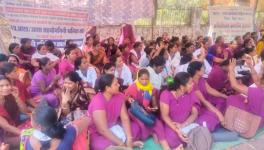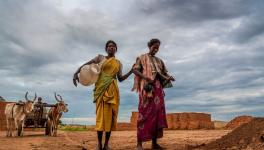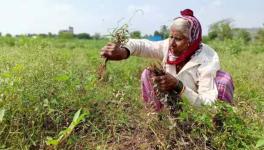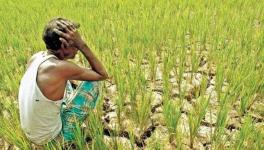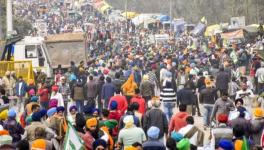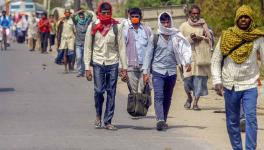COVID-19 in Rural India-XXXVII: How Ummulong Village in Meghalaya is Struggling to Cope with the Lockdown
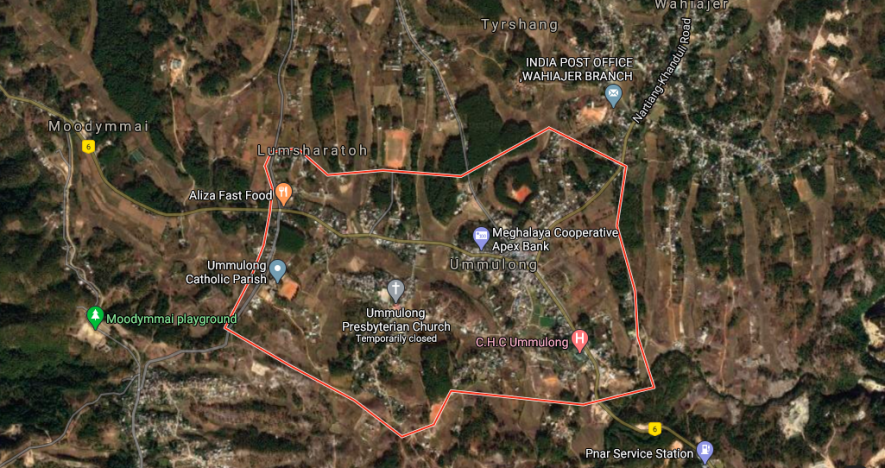
This is the 37th report in a series that provides glimpses into the impact of COVID-19-related policies on life in rural India. The series, commissioned by the Society for Social and Economic Research, comprises reports by various scholars who have been conducting village studies in different parts of India. This report takes a look at the village of Ummulong in Meghalaya, where agriculture and related activities have been disrupted due to the lockdown.
Ummulong village falls in the Thadlaskein block of West Jaintia Hills district in Meghalaya. It is the second largest village in the block, home to 3,220 individuals across about 514 households. According to the 2011 Census, there are 1,565 males and 1,655 females in Ummulong. Around 98.39% of the villagers are from the Pnar tribe; Scheduled Caste (SC) households constitute 0.37 per cent of the population and the rest belong to other communities.
Ummulong is located on the National Highway and provides easy access to the district headquarters, Jowai, which is about 13 kms away and to Shillong, the capital, which is close to 51 kms away. The village has over ten schools as well as several shops selling groceries and other items. Ummulong draws people from nearby villages who live there to get access to better schools and employment opportunities; between 70% to 75% of villagers rent their houses to families from nearby villages. Most of the houses (including those on rent) in the village are pucca houses with two or three rooms.
Of the ten schools in Ummulong, four teach pupils up to to the secondary level, while the remaining go up to the lower or upper primary levels only. Seven of these schools are owned privately, three receive support from the Sarva Shiksha Abhiyan and one is a government-aided school. There is no government school in the villag and no piped water either — villagers rely on wells for water to cook and bathe, while laundry is done by the riverside.
The villagers rely on weekly markets that are organised in different villages and towns in the area, to buy essential supplies and to sell their produce. The closest market is in Iawpynsin in Wahiajer village, which is adjacent to Ummulong. The day on which the weekly market is set up, changes every week, going from Monday this week to Tuesday in the next week. Iawmusiang is the biggest weekly market in the district, and it is located in Jowai. The market typically offers food items, clothing, hardware, electrical goods, medicines, agricultural implements, handicrafts, audio-video equipment and other goods for sale.
This report examines the impact of COVID-19 on Ummulong. The writer is a native of the village and has been there since March 18, 2020, due to the lockdown.
Enforcing the lockdown
When the lockdown began, a group of male and female volunteers from different localities (including some youths and some teachers) were selected by the local administration to help enforce the lockdown. Their primary responsibility was to prevent the entry of non-residents into Ummulong and to ensure that the villagers observe social distancing guidelines. The volunteers also work in close collaboration with the police to prevent large groups from gathering. If anyone is seen outside their home without a valid reason, they are given mild ‘punishments’ such as having to perform frog jumps, or taken to the local police station.
Impact on agriculture
Agriculture is the main source of income for around 70% of the households in Ummulong. The major food crops are paddy and maize, while other crops that are grown include potato, ginger, garlic, tomato, cabbage and cauliflower. The maize is a standing crop that will be harvested in June or July. Other vegetables grown in Ummulong include chilli, cucumber, pumpkin, radish and carrot. Fruits such as orange, lemon, plum, pear, peach and local fruit such as sohshang (wild olive) and sohiong (a dark cherry-like temperate fruit known as black fruit) are also grown.
The two main issues that farmers in Ummulong face are a shortage of agricultural inputs and their inability to sell produce. All the weekly markets have remained closed during the lockdown, including Iawpynsin and Iawmusiang. According to a seller of agricultural inputs, there was a shortage of fertiliser and hybrid seeds. Even when the seeds are available, farmers are unable to purchase the necessary fertilisers. The uncertainty among farmers about being able to sell their harvest is also discouraging them from investing in new crops. For instance, crops like cabbage, which is grown during the winter, have been left to rot since the nearby weekly markets are not operational and the farmers have no storage facilities (this has caused residents of the nearby town to face a shortage of vegetables). Thus, at the moment, farmers are only growing vegetables for household consumption.
Also, most villagers have been unable to work in the fields during the lockdown due to strict surveillance and the enforcement of social distancing protocols by the village volunteers. Some farmers, whose fields are close to their homes, have been able to work early in the morning, as the volunteers do not monitor all parts of the village at all times. In general, income from farming has fallen drastically during the lockdown, and so has the consumption of basic food items such as rice and meat.
Recently, Conrad Sangma, the Chief Minister of Meghalaya, made an announcement regarding the easing of the restrictions for the agriculture sector. The district administration subsequently made a similar announcement. However, no instructions have been issued regarding the reopening of the weekly markets as yet.
Impact on non-farm employment
During the lockdown, some non-farm activity involving local workers, has been allowed to continue. For example, a group of well-diggers have continued to work while practising social distancing. All of them are from the neighbouring village of Wahrymbai, which is close to Ummulong; the workers walk to the village using lanes and paths that see lesser traffic, and have thus remained unnoticed by the village administration and the volunteers.
However, all construction work in the village has stopped, as have non-farm activities such as transportation, brick-making and mining. When work is available, men earn around Rs 350 per day for construction work and other manual labour. As in other parts of Meghalaya, woman from the lower socio-economic classes, work as domestic help. They typically earn about Rs 300 per day for domestic work, which includes cleaning houses and washing clothes. The latter has been prohibited during the lockdown, and this, along with the restrictions placed on people’s movement, has meant that most domestic workers have been unable to keep their jobs.
The owners of a grocery store in the village said that they had stocked essential items in their home to sell to their neighbours. These stocks lasted until the first week of April.
There is no MGNREGA work available during the lockdown. Those who had done work under the scheme were seen queuing in large numbers outside the local Meghalaya Cooperative Apex Bank (MCAB) branch until April 18, 2020, seeking the wages they were owed.
Access to banking facilities/ATMs
The village has three banks: the State Bank of India (SBI), United Bank of India (UBI) and the Meghalaya Cooperative Apex Bank (MCAB). SBI and UBI also have an ATM each. All three have been operational during the lockdown.
Availability and retail prices of major food commodities
To ensure that there is no shortage of food, the district administration has allowed small, temporary markets to operate in each locality for two days a week since April 1. These temporary markets are very small as compared to the weekly markets. The announcement of the market day is usually made by the village administration the previous day, and the volunteers monitor people to ensure that social distancing is practised. The state authority has also issued curfew passes to vehicles carrying essential commodities. However, it was reported that people were being overcharged for food items at the temporary markets. The prices of certain essential items have risen during the lockdown (Table 1) although, as of April 18, there was no shortage of supply.
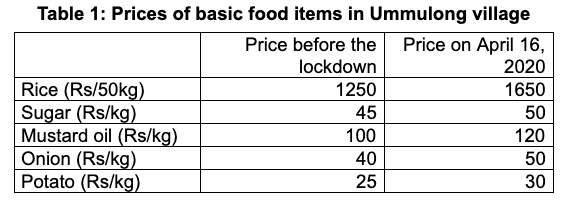
Intervention by the government/local administration
When the lockdown began, large numbers of people were seen rushing to grocery stores as they were worried about food shortage. The police took action to prevent crowding and the government has also taken steps to ensure the availability of food. Some people continue to stock up on essential commodities whenever possible.
On March 31, 2020, the village administration announced that daily wage labourers—including domestic workers, construction workers, brick-makers — and owners of small shops would be paid a sum of Rs 1,000 per week on the condition that they registered themselves with the village authority. People were asked to bring their voter ID, mobile phone number and bank pass books for registration at the village community hall. The registration was completed in the first week of April. However, it was reported that people had not received the money by the time this report was compiled (April 18). It was also reported that the amount to be paid would actually be Rs 700 per individual per week. People with a ‘job card’ or those registered under the MGNREGA are not require to complete the registration process, as the amount will be directly transferred to their existing MGNREGA bank accounts.
Support from NGOs/civil society organizations/political organizations
One family in the village is providing poor households about ten kgs of rice per family as well as one kg each of onion, potato and salt. They reportedly identify families that need these rations based on common knowledge of the household’s financial circumstances. Respondents also reported that the MLA of the constituency planned to distribute rice to the poor about two weeks after the lockdown began. However, the criteria for identifying deserving households were vague. For example, a household with nine family members headed by a widow received only about ten kgs of rice. Others received about six kgs, but the quantity seemed to vary based on the decisions made by the distributors.
Some villagers tried exploring the nearby forest to find local edible plants. Some are also fishing in the rivers. However, the volunteers in the village are now preventing villagers from engaging in these activities.
To sum up, markets, especially weekly ones, are central to rural life in Meghalaya. The cancellation of these weekly markets during the nationwide lockdown has brought great hardship to both producers and consumers. Farmers have been unable to harvest and sell agricultural produce such as vegetables in Ummulong village while neighbouring villages and towns have faced shortages of the same. There is also a shortage of agricultural inputs. Fortunately, the villagers have not yet had to face a shortage of food, but the prices of some essential commodities have risen. For the poor, the lack of available employment during the lockdown is a cause for concern, especially among women domestic workers, agricultural labourers, construction and mining workers.
The writer is a Doctoral Scholar in Development Studies at the Indian Institute of Technology in Guwahati
Get the latest reports & analysis with people's perspective on Protests, movements & deep analytical videos, discussions of the current affairs in your Telegram app. Subscribe to NewsClick's Telegram channel & get Real-Time updates on stories, as they get published on our website.










